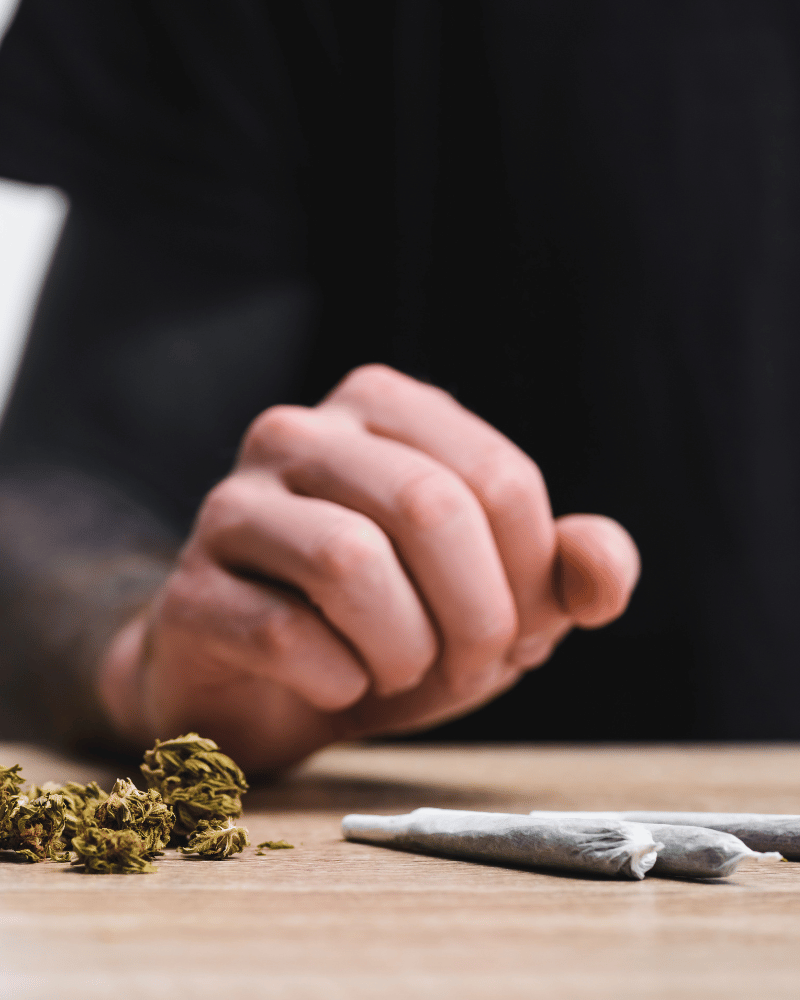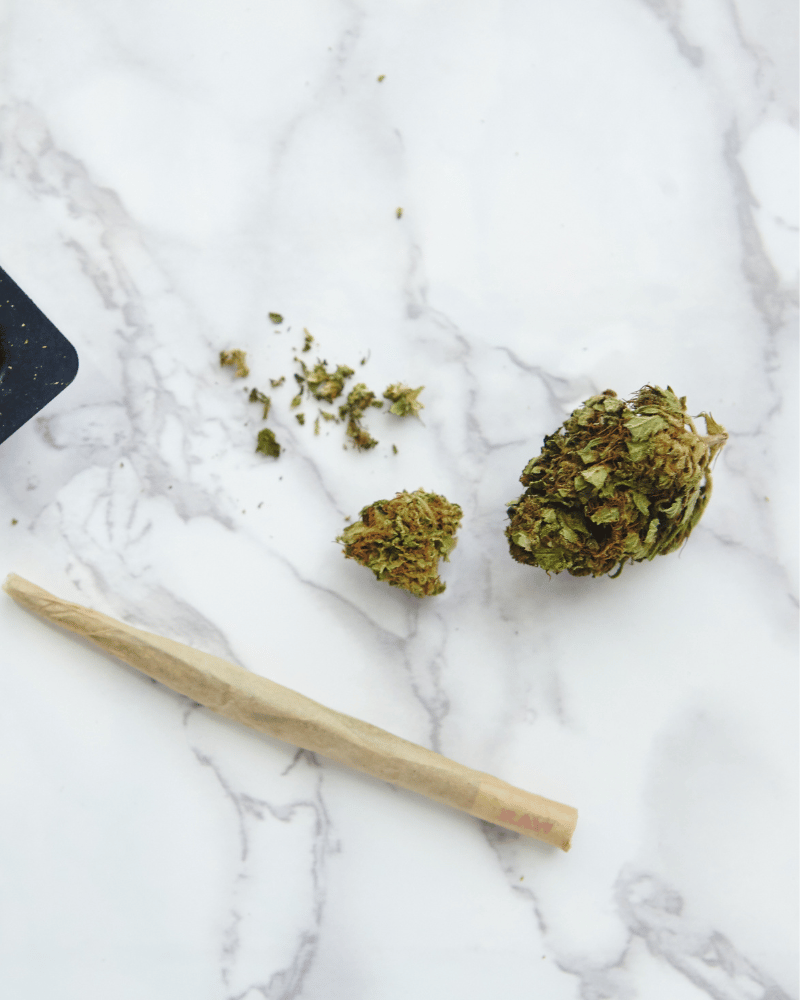HHC (Hexahydrocannabinol) is a substance that can produce effects similar to THC, but it is often handled differently in terms of use and legal regulations. Although HHC is popular, the topic of withdrawal and its associated challenges rarely receives attention. On this page, we provide you with comprehensive information about the symptoms, duration, and personal experiences of HHC withdrawal. Our goal is to help you understand the signs, know what to expect during withdrawal, and find out where you can get support. Whether you are personally affected or supporting someone else, here you will find helpful resources and learn how to best approach the path to recovery.
Symptoms of HHC withdrawal
Withdrawal from HHC can cause symptoms similar to those experienced with other cannabinoids. The intensity and type of symptoms vary depending on the duration and intensity of use. The most common symptoms include:
- Restlessness and nervousness
- Sleep disturbances, such as trouble falling asleep or staying asleep
- Mood swings, including depression or anxiety
- Physical discomfort such as headaches and sweating
- Loss of appetite
- Difficulty concentrating
These symptoms are usually temporary and subside after a few days to weeks. Professional support can make the process easier and is often essential for successful recovery.


Duration of HHC withdrawal
The duration of HHC withdrawal can vary greatly from person to person, but it typically depends on how often and how much HHC was consumed. In general, the first symptoms may appear within 24 to 48 hours after the last use and usually progress as follows:
- Acute phase: This phase usually lasts from a few days up to a week. During this time, withdrawal symptoms are often at their most intense.
- Resolution phase: After the acute phase, symptoms gradually begin to subside. This phase can last from one week to several weeks.
It is important to note that the overall duration of withdrawal is influenced by individual physiology, professional support, and the availability of resources. Some people may also experience a longer-lasting phase of mild symptoms, known as post-acute withdrawal syndrome (PAWS).
Support for HHC withdrawal: Medical and psychological
You don't have to go through HHC withdrawal alone. Here are some effective support options:
Medical Support
- Medical supervision: Doctors can monitor withdrawal and provide medication for severe physical symptoms.
- Detox programs: Specialized clinics offer programs for safe and supervised detoxification.
Psychological Support
- Individual therapy: Therapists help you understand the reasons behind HHC use and prevent relapse.
- Group therapy and self-help groups: Sharing experiences with others provides mutual encouragement and support.
Online Resources
- Digital counseling services: Online counseling and telephone hotlines offer quick assistance and guidance to further support.
- Informative platforms: Websites and forums provide access to important information and community.
No matter which form of support you choose, the key is to develop a plan tailored to your needs.
Tips against HHC abuse
The best way to address the challenges of HHC withdrawal is to avoid misuse from the outset. Here are some preventive measures that can help:
- Education is key: Learn about the effects and risks of HHC, and share this knowledge with others. Being informed provides a strong foundation for responsible behavior.
- Set clear boundaries: Decide for yourself when and how much HHC is appropriate. Establishing clear rules can help prevent overuse.
- Watch for warning signs: Recognize early changes in your own behavior or that of your friends that could indicate possible misuse.
- Seek support: Don’t hesitate to seek professional help or counseling if you have concerns or questions about HHC use.
- Strengthen your network: A strong social environment can offer support and protection. Share your concerns and goals with trusted individuals.
By following these tips, you can minimize the likelihood of HHC misuse and contribute to more responsible use.

AK-47 Strain Cultivation Guide
Cultivating the AK-47 strain requires some expertise, but with proper preparation and care, even beginners can succeed. Here are some key steps for growing the AK-47 strain:
- Select genetics: Make sure you get high-quality AK-47 seeds or clones from a trusted source to ensure healthy and robust plants.
- Choose a growing medium: AK-47 thrives in both soil and hydroponic systems. Choose the medium that best matches your preferences and experience level.
- Light and temperature: AK-47 prefers a warm, Mediterranean climate with plenty of sunlight. Ensure your plants receive at least 6 hours of direct sunlight per day, or use indoor lighting with an 18/6 light cycle during the vegetative stage and a 12/12 light cycle during the flowering stage.
- Watering and fertilization: Keep the soil evenly moist but not waterlogged, and avoid standing water that can cause root rot. Use a high-quality fertilizer rich in nitrogen, phosphorus, and potassium during both the vegetative and flowering stages.
- Pruning and training: Regular pruning and training can help maximize growth and yield. Remove dead leaves regularly and prune the plants to improve air circulation and prevent pest infestations.
- Harvesting and drying: The AK-47 strain is typically ready for harvest after 8-9 weeks of flowering. Monitor the trichomes to determine the optimal harvest time. Dry your harvest slowly and evenly to preserve flavor and potency.
With these basic steps and a bit of patience, you can successfully grow your own AK-47 strain and achieve a plentiful harvest of high-quality cannabis.
AK-47 Strain: our bestsellers
Experience the legendary AK-47 strain and discover why it's one of our customers' favorites!
- 🌿 HHC AK-47 20%: Immerse yourself in the powerful effects of the AK-47 strain with our premium HHC product.
- 🌱 Cannabis Seeds AK-47 auto. 3 pcs: Want to grow your own plant? Get our AK-47 Auto seeds and start your own cannabis adventure.
💰 Grab our bestsellers now while supplies last! Make the AK-47 strain your next cannabis experience!
FAQs
The first signs of HHC withdrawal often resemble those of THC withdrawal and include both physical and psychological symptoms. These can include restlessness, irritability, sleep disturbances, depression, anxiety, and physical symptoms such as headaches, sweating, and loss of appetite. These signs may appear as soon as the effects of HHC wear off and the body starts to adjust to the absence of the substance.
There are various treatment approaches for HHC withdrawal, depending on the severity of the symptoms. Mild cases can often be managed at home with support and simple self-help strategies, while severe cases may require medical supervision or even inpatient treatment. Treatment options include medical care to manage symptoms, psychological counseling, behavioral therapies, and support from self-help groups.
Yes, in many cases HHC withdrawal can be managed at home, especially if the symptoms are mild and the person has a strong support network. At home, strategies such as relaxation techniques, regular exercise, a healthy diet, and sufficient sleep can be helpful. However, it is important to seek professional medical help if symptoms worsen.
A healthy diet plays a crucial role during HHC withdrawal, as it helps the body recover from the physiological effects of long-term use. Vitamins and minerals can strengthen the immune system and support the normalization of bodily functions. It is recommended to drink plenty of water and consume nutrient-rich foods to provide energy and support the healing process.
The long-term effects of HHC withdrawal depend on several factors, including the duration and intensity of use. While many people make a full recovery, some may experience lasting psychological issues such as persistent anxiety or mood swings. It is important to continue seeking psychological support after withdrawal to address these potential long-term effects.
Relapses are a common issue, but they can be minimized through a combination of ongoing therapy, participation in support groups, and the development of strong personal coping strategies. It is also helpful to identify and avoid triggers, as well as to maintain a supportive environment that encourages a healthy lifestyle.


